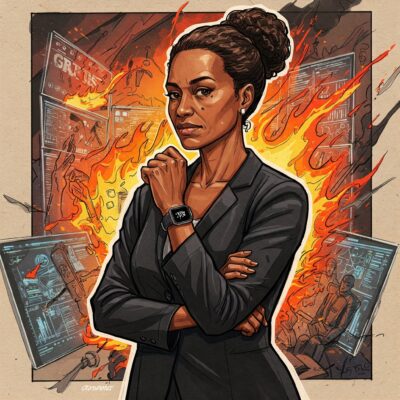Crisis managers coordinate and implement strategies to address and mitigate the impact of emergencies, such as natural disasters, cyberattacks, or organizational crises, ensuring minimal disruption and swift recovery.
What is a typical day as a Crisis Manager?
– Developing and updating crisis management plans and protocols.
– Conducting risk assessments to identify potential vulnerabilities.
– Coordinating response efforts during crises, such as mobilizing resources or issuing public statements.
– Training employees on crisis response and communication strategies.
What else might they be expected to do?
– Collaborate with government agencies, first responders, and stakeholders during emergencies.
– Analyze past incidents to improve future response strategies.
– Stay informed about industry-specific risks and emerging threats.
What type of training is needed for this career path?
– A degree in Emergency Management, Security Studies, or Business Continuity is beneficial.
– Certifications in crisis management or risk assessment (e.g., Certified Emergency Manager – CEM) are valuable.
What kind of personality is needed to excel in this career path?
– Calm, strategic, and decisive individuals thrive in this role.
– Big 5 traits: Emotional Stability and Conscientiousness.
– Myers-Briggs types: ENTJ or ESTP align well with this career.
What challenges can I expect to face if I pursue this career path?
– Managing high-pressure situations with limited information.
– Balancing immediate response actions with long-term recovery planning.
– Navigating the complexities of stakeholder communication and public relations during crises.
What are the job prospects for this path in Kenya and Africa? What about International prospects for a Kenyan citizen?
– Kenya and Africa: Increasing demand in industries prone to risks, such as manufacturing, IT, and finance. Opportunities also exist in government disaster management agencies.
– International: High demand in global corporations, humanitarian organizations, and international security agencies.
What should I focus on if I choose to pursue this career?
– Develop strong leadership, communication, and problem-solving skills..
– Gain experience in risk management, emergency response, or business continuity planning.
– Stay informed about best practices in crisis management and disaster recovery.
Which other careers or job roles can I progress to?
– Business Continuity Manager
– Risk Assessment Specialist
– Security Consultant
– Disaster Recovery Coordinator

